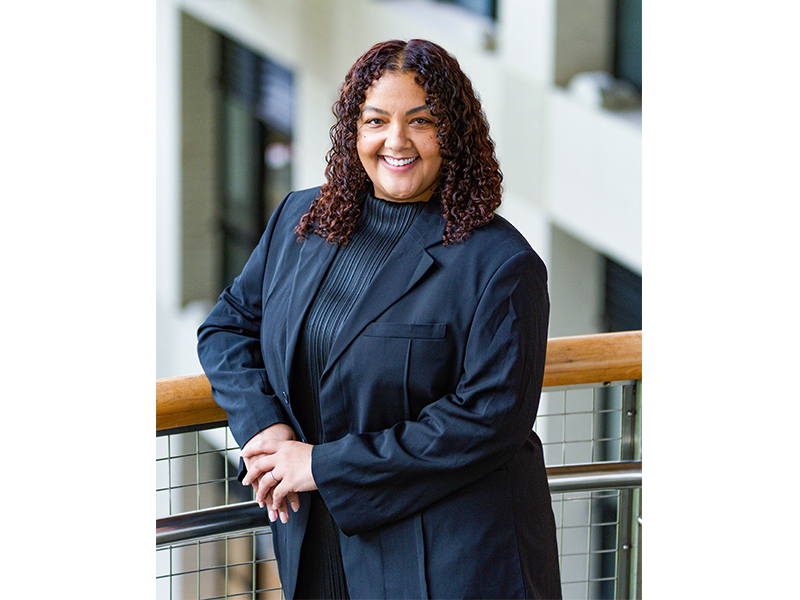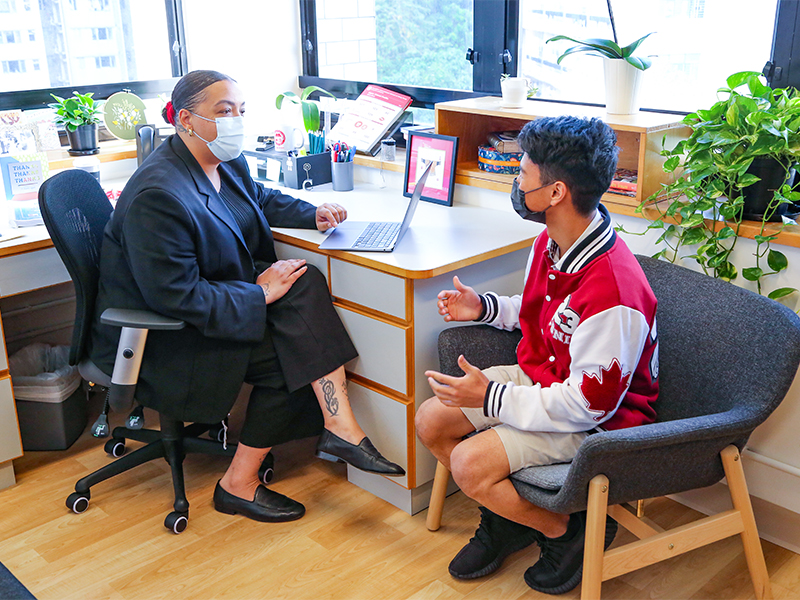Deciding on which tertiary education pathway to take and the university application process can be a daunting task and it’s important for students to understand the options they have to find the best fit for them. Here, we talk university admissions with DR CHANTELLE JACKSON-BOOTHBY, who arrived recently to join the counselling team at the Canadian International School of Hong Kong (CDNIS) as Director of University Counselling, providing support to students and families.
Tell us a bit about your background in education and where you’ve worked.
I have a German parent and an American parent, so I was raised between the US and Germany; I went to university in California. I started my education career in admissions and recruitment before moving into counselling. After working at an IB World School in California, mostly with international students who were coming to the US to go to boarding school, I moved to the UK. For the past four and a half years, I’ve been helping schools with their North American universities provision – from showcasing US universities to providing programme and individual support.
Now, I’ve arrived in Hong Kong at the busiest time for anyone who does university counselling work – so, it’s a case of hitting the ground running! But it’s been a really pleasant experience so far.

Have you spent time in HK before this?
We visited a number of schools in Hong Kong in 2017 for my doctoral programme, and one of them was CDNIS. When I was looking at taking on this role, I went back into my old notes – I thought, “I know I’ve been to this school before!” So it’s come back full circle.
What’s your role at CDNIS?
I’m the Director of University Counselling. My primary focus is supporting our counselling team and of course our students and families who are starting to think about university. Our aim is to ensure students understand the options they have and to help them think globally. It helps that many CDNIS students have grown up speaking multiple languages and holding multiple passports; they can really think about higher education as not just a regional adventure but instead something that can take them to lots of different places internationally. Many of our students apply to Canada and Hong Kong, of course, or universities in Australia and New Zealand, while others apply for the US, the UK and continental Europe.
What’s important when it comes to students choosing a tertiary education pathway?
To use an education buzzword, it’s about finding your best fit. When it comes to university, some things can be super important to one student and less critical to another. Do you want to live by yourself or with others in a dormitory? Do you love or hate the cold? How close do you want to be to your nearest international airport?Would you prefer a class of five students or 400?
We want them to start thinking about these things early on and to look beyond the notion of university names and brands; instead, they should ask, “What can this university do for me?” We also want them to understand that it’s very normal to not know what you want to be for the rest of your life, so they don’t need to rush into a decision. I think it’s helpful for students to make decisions that are based on really thoughtful reflection rather than on where they think they might need to go because of one or two parameters.
When should university counselling start?
In Grade 9, at the latest. That doesn’t mean doing application work and pressuring students to decide, but starting the conversation. It also should start whenever is good for families – I say this because I have Grade 7 and 8 students who are already excited to ask questions about the process, which we’re happy to answer.
At CDNIS, we have what we call a college clinic, which allows any student to come by after school and talk to any of the university counsellors without coming out of class. Families can also make an appointment to speak with us – we’re delighted to have started working with them in person again recently. I think it does help for parents to come in and see us, even to know where we are located and to see the space where students spend their time with us.
We work on a split model in this office; it’s a really big space where we have our guidance team working with students on social and emotional support, and then our university counsellors who focus on applications, career advice and support. I think it works well for students because they’ve got a team of people around them who can offer support in every area.
We’re also split in terms of our specialisation. Because of my background, I focus mostly on highly selective US universities, while other counsellors work primarily with students on the UK process or those interested in Canadian universities, for example. We can talk to them from our own experience, knowing what it’s like to be a student in that system. Having said that, it’s unusual for our students to focus on one country, and they can seek advice from different people on our team.
Any trends among CDNIS graduates as to where they want to study and the careers they’d like to pursue?
Continental Europe is becoming increasingly popular. More students seem to be applying for university in the Netherlands, for example – and not only at the big schools but also at liberal arts colleges that have started to pop up.
Another exciting trend is students taking advantage of dual and triple BA programmes that allow them to study in multiple countries. One course that’s really popular with our students this year is the World Bachelor of Business through the University of Southern California (which is actually where I went to school) – you spend a year in each of Hong Kong, Los Angeles and Milan, going to schools like Bocconi, USC and HKUST; then, for your fourth year, you get to pick the place where you’d like to finish the degree. You all move together as a cohort and, in the end, you get degrees from all three universities. Another example is the dual programme between Trinity College Dublin and Columbia University, with two years spent in Ireland and two in the US.
Students today are thinking more about marketability and return on investment – where they’re going to spend four years, who they’ll give their money to, and whether they’ll be marketable afterwards. If a student wants to work in Asia, perhaps a programme here is of more value.
What are a couple of tips you would give CDNIS students about the university application process?
Firstly, be broad in your approach. Some university counsellors in the field can be guilty of signalling students to narrow their focus quite quickly; but you don’t need to do that until the very end. Secondly, think about some of the perspectives I mentioned earlier – about the environment you’re hoping to find yourself in and the kinds of things that will make you comfortable outside university, as they will help make the uni environment even more pleasing. It’s always a hard transition – everyone finds things that they struggle with in the first year, no matter where they go – so being in the right environment for yourself is key.
What are you enjoying most about the job so far?
It’s amazing seeing students make choices for themselves and then email us in their first few months at university to say, “Hey, look what I’m doing this year”. It makes everything worth it.
CDNIS Hong Kong is at 36 Nam Long Shan Road, Aberdeen
2525 7088 | cdnis.edu.hk
Subscribe to Expat Living now so you never miss an issue!






